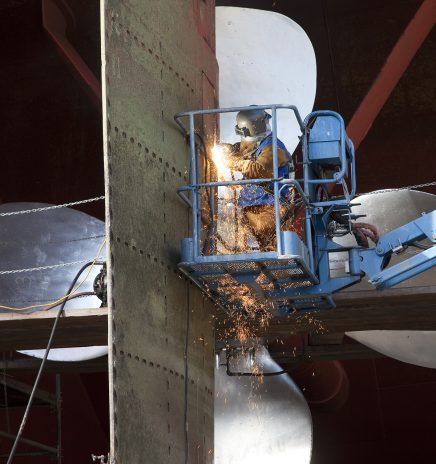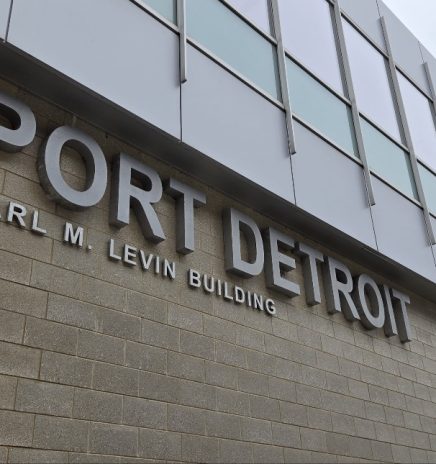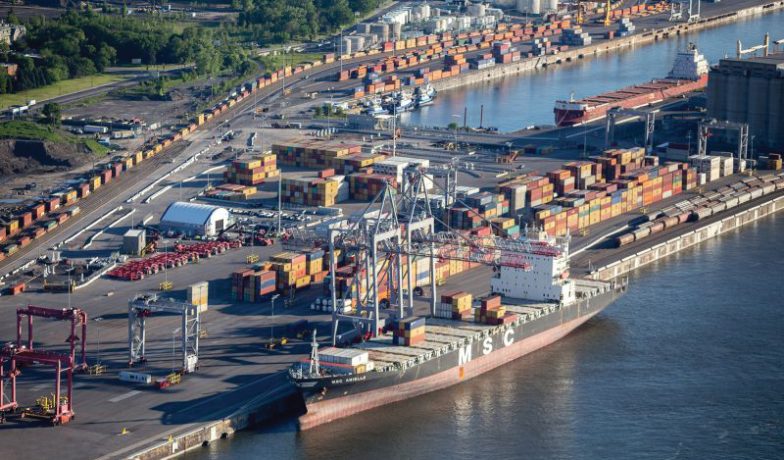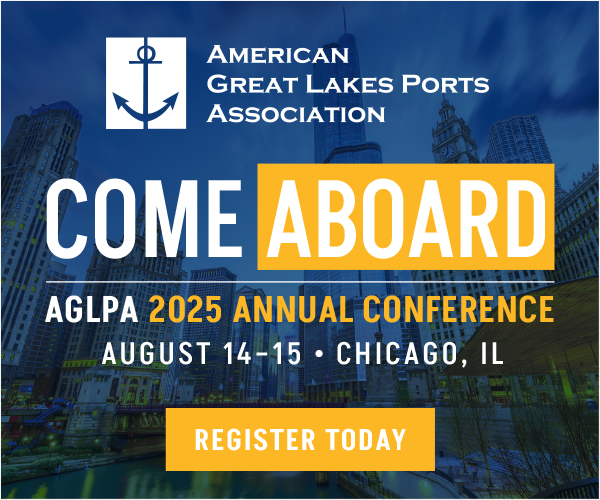Artificial Intelligence And Its Role In Maritime
For the Port of Montreal, part of the answer lies in the use of Artificial Intelligence (AI). In 2017, before the shipping crisis hit, the port began using the Trucking PORTal app to get a 24-hour forecast of truck traffic at the terminals. With a better idea of when trucks were arriving and departing, the port developed better route plans and reduced the congestion that sometimes happened when too many trucks were onsite at one time. An added benefit is that with trucks no longer idling as they wait to be loaded or unloaded, emissions are reduced.
On the heels of the positive reaction to the AI trucking app, the port has turned its attention to the connection between ships and rails. As it is with trucks, the more lead time the port has on knowing when ships and trains arrive and depart, the better they can manage loading and unloading and the flow of traffic. In addition, they can better plan for labor needs at any given time.
The Launch of Galileo
Organizing a workforce to meet demand at any given moment is challenging. Schedules can’t be made last minute, but having laborers standing idle waiting for shipments is expensive. Fortunately, the Maritime Employers Association (MEA), the employer of longshore workers and checkers, recognized this issue, and in October 2022 launched Galileo. The AI project was designed in collaboration with Montreal-based AI specialist Airundi with assistance from Canada’s AI Cluster, Scale AI.
The goal is to improve the dispatch planning for the port workforce, synchronizing the actions of those working in the supply chain, in turn, speeding up freight service. The tool will make it possible to predict the arrival time of ships up to 21 days in advance. Currently, port officials only have a 24-hour window to prepare.
“When I started at the MEA as vice president, Information Systems, I realized that there were no technological solutions for providing ship arrival times, real-time data, or ship loading and unloading forecasts. Having extensive experience, particularly in aeronautics, this surprised me, but I immediately seized on the opportunity with my team. That’s how the Galileo project was born. Finally, an AI tool to assist the maritime industry’s logistics experts,” said Robert Roy, president of the Maritime Employers Association.
Galileo will propose how the labor force should best be dispatched taking into consideration port traffic, the weather, and quantity and type of merchandise being transported. Galileo will also take into account collective agreements and required classifications. With the collected knowledge, MEA will be able to share data on the time required to load and unload ships based on the number of workers, and on the optimal time of day to begin operations. Supply chain stakeholders will all benefit from this knowledge realizing a reduction in labor shortages and better forecasting for labor needs, optimized hiring costs and better coordination across all stakeholder businesses.
Future AI Investing
The efforts under Galileo and at the Port of Montreal are just one avenue that AI is taking into the maritime industry. As investments in finding means to minimize global supply chain disruptions have grown significantly, the demand for AI has made it one of the fastest-growing technologies within the maritime industry. According to Thetius Intelligence Platform (2022) the maritime industry was forecast to spend $931 million on AI solutions this past year and is expected to more than double that investment over the next five years. So far, $331 million has been invested directly, with another $43 million awarded in grant funding.
Research and testing are well underway for using AI to gain insight into machinery health, to improve decision support solutions and to create autonomous ship systems where eventually commercial fleets could be unmanned.
A move towards unmanned fleets is a complex undertaking encompassing individual AI sectors like collision avoidance, vessel performance optimization, cybersecurity and data management. There are also considerations for how manned and unmanned vessels can work in tandem.
Machinery health management combines technical support services and technology like smart sensors to check that onboard equipment and machinery are operating efficiently, removing the need for more regular physical inspections and helping thwart any problems at sea.
Remote diagnostics fill the gap where AI may not be able to react to certain conditions, like bad weather or running aground. It allows onshore crews who have the expertise AI may be lacking to interact with onboard systems to keep ships operating efficiently. Remote diagnostics also open communication between online experts and crews where further knowledge may be needed.
At the root of any AI initiatives is the need to collect massive amounts of data, which serve as the foundation for AI technology. Those in the maritime industry should be collecting and storing data on every facet of their operations to aid in bringing technological advances to shipping. As AI progresses throughout the maritime industry, there are some considerations on the best means of adopting the new technology. AI is not new and relying on experienced third-party service providers and systems instead of building something in-house from scratch may make the most sense.
The end benefits of incorporating AI can alter the entire maritime industry making vessels more highly optimized, automated and safer; streamlining shipping operations from ship to rail to truck; efficient planning for labor needs; and effective reductions in emissions.

U.S. Shipping Companies Invest in Great Lakes
Critical maintenance is well underway on the U.S.-flagged fleet of lakers tied up at ports across the Great Lakes region in anticipation of the upcoming navigation season. Hundreds of skilled... Read More

Clean Energy Win for Port of Detroit
Over the last few years, the Detroit/Wayne County Port Authority has developed an extensive air quality improvement and decarbonization plan to address environmental and energy issues related to port operations.... Read More




